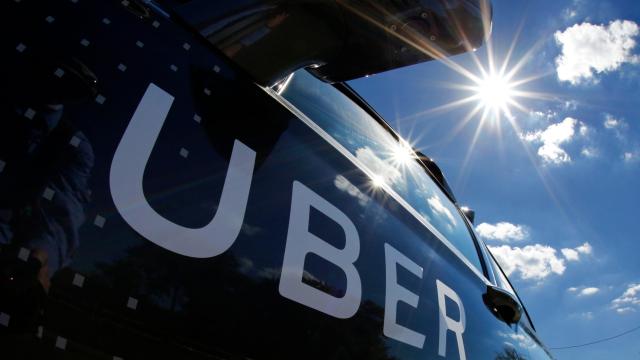Uber’s seemingly never-ending series of scandals could fill several books, but perhaps the most awful and damaging stories have been reports of the ridesharing service’s drivers sexually harassing or assaulting passengers. A CNN investigation released on Monday shows how huge the scale of that problem is, with at least 103 Uber drivers in 20 major US cities “accused of sexually assaulting or abusing their passengers in the past four years.”
Each of those 103 drivers has been “arrested, are wanted by police, or have been named in civil suits” in relation to the alleged abuse, CNN wrote, and in at least 31 cases the drivers were convicted. In 18 others, charges were dropped, dismissed, or the drivers were ruled innocent – results that don’t necessarily mean the alleged incidents didn’t happen.
The same investigation found 18 incidents matching that criteria for Lyft, one of Uber’s biggest rivals.
Since neither Uber or any of its ridesharing competitors make such data publicly accessible, CNN came up with the tally by consulting police and court records in 20 cities. As CNN noted, the number of sexual assaults flies in the face of Uber’s “safe ride home” branding, which promised safety to riders who were in many of the 103 cases inebriated:
Its print and digital ads show women taking Ubers for nights out, and a partnership with Mothers Against Drunk Driving includes a “designated rider”campaign urging users to take an Uber to avoid driving under the influence. In 2015, Uber set up a popup kiosk in Toronto to offer free rides to those who blew into breathalyzers.
Though Uber updated its policies in 2016 to ban sexual contact, five drivers “across various states” told CNN they did not receive any sexual harassment or assault training when they signed up for the app. CNN added that though Uber recently uploaded sexual assault prevention videos to its website and promised to host a series of community forums on the issue, neither of those happened until after “CNN first contacted Uber about this story.”
Uber similarly said this month it would tighten its background check system to inform them when a driver who had previously passed the check fell afoul of the law. It also told CNN it would roll out safety features including a 911 button and a sort of digital buddy system where users can choose to have others receive live updates on the course of their trip – though those announcements also followed months after CNN wrote they had first contacted Uber for the story.
Whether or not Uber is less safe than taking a taxi is not as clear – as the Atlantic noted in 2015, police departments in Boston, San Francisco, Chicago, New York, and DC all told them their criminal records are not filed in such a way that would allow officers to conduct a search of crime reports on that granular a level. That same story noted that many taxi drivers across the country might not be subject to background checks at all, though Uber’s digital background check system is not as rigorous as fingerprint-based ones offered by the FBI, which are themselves not necessarily complete. (Uber has long resisted implementing the latter system.) Other changes that Uber could possibly make include in-person interviews or character checks.
In any case, this number is what it is: 103 cases that have attracted police attention or made it to the courts in 20 cities. Studies have repeatedly shown the majority of sexual assaults go unreported, and Uber’s business model has expanded to service basically everywhere, so this tally likely comes nowhere close to the true number.
What is clear is that Uber’s promises to make this a priority follow a long and sordid trail of alleged sexual harassment at its offices, an instance when senior executives tried to smear a rape victim in India, and forcing lawsuits brought by women who alleged they were assaulted by drivers into arbitration.
Dara Khosrowshahi, the CEO brought in to replace company founder Travis Kalanick last year, has promised to reform Uber, but many of the company’s issues are deeply rooted in the past and new ones tend to keep popping up. Khosrowshahi told CNN that cracking down on sexual assault is a “new priority for us,” but one that “I expect to remain a priority for the foreseeable future.”
[CNN]
